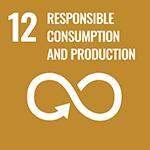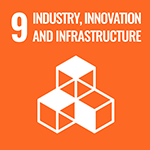Development of a Carbon Recycling System toward a Decarbonized Society by using Mineral Carbonation
Principal Investigator


Prof.
Cape Peninsula University of Technology (CPUT)
Tunde Victor Ojumu
ODA Recipient Country
Republic of South Africa
Research Institutions in Japan
Tohoku University / Seikei University / Fukuoka Institute of Technology / Taiheiyo Cement Corporation
Research Institutions in Counterpart Country
Cape Peninsula University of Technology / University of Cape Town / University of the Western Cape / Council for Geoscience
Adoption fiscal year
FY 2020
Research Period
5 Years
Overview of the Research Project
Develop a carbon recycling system using mineral carbonation as a step toward climate neutrality
The cement industry is taking various approaches to the reduction of CO2 emissions. Our approach is to focus on process-related CO2 emissions that account for 60 percent of the industry's CO2 emissions, and to develop a carbon recycling system based on performing mineral carbonation of alkaline by-products and waste materials. The resulting carbonates are recycled for use in cement production. Resources that cannot be recycled are used as environmental purification materials, thereby creating a new circulation loop.
Use mineral carbonation to reduce carbon emissions, and contribute to the circular economy with environmental purification materials
We are advancing toward carbon neutrality by developing technologies with low CO2 marginal abatement costs for making equipment that can easily be procured, operated, and maintained by entities in developing countries. In addition, low-cost, useful products like environmental purification materials made from alkaline by-products and waste products are being developed, and it is expected that they will be used also for the treatment of acid mine drainage.
Photo gallery
Research Project Web site
Press Release
Links
Projects
Contact Us
Japan Science and Technology Agency (JST)
Department of International Affairs
SATREPS Group
TEL : +81-3-5214-8085
Related articles by Category
- Carbon Neutrality
Environment / Energy
(Carbon Neutrality)
 Kingdom of Cambodia
Kingdom of Cambodia
Using water management to reduce methane emissions from rice paddies!
Development and Social Implementation of Greenhouse Gas Emission Reduction Technologies in Paddy Fields of West Tonle Sap Lake by Establishing a Large Paddy Area Water Management System
- Southafrica
Environment / Energy
(Carbon Neutrality)
 Republic of South Africa
Republic of South Africa
From the world’s strongest sunlight, making the cheapest ammonia to save Africa and Japan
Development of New Ammonia Synthesis System using Renewable Energy and Hydrogen
- Africa
Environment / Energy
(Global-scale environmental issues)
 Republic of Zambia
Republic of Zambia
Experienced, not taught - Realizing safe water, sanitation and hygiene in Africa
Risk-based Participatory WASH Planning and Citizen-data WASH Statistics for African Peri-urban Settlements
- SDGs : Goal.13
Environment / Energy
(Carbon Neutrality)
 Republic of Indonesia
Republic of Indonesia
Healthy people, healthy world: Transforming CO2 with microalgae
Integrated Sustainable Energy and Food Production from Microalgae-based Carbon Capture and Utilization





















